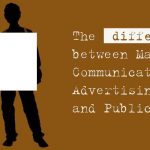There cannot be many people left on the planet who have not received an email from a generous diplomat in an obscure African state that desperately needs to transfer $15,000,000 to a bank account in a secure country… just like yours. It goes on to explain that your reward for helping is 5% of the sum. All this poor hard-working civil servant needs is your bank details to dump this incredible load of dosh into your account. Now isn’t that just the kind of cut-and-dried, no-nonsense business deal that you always dreamed of?
$750,000 for showing a little trust and, as requested, discretion; that’s what you call a good day’s work.
But… hold on just a second, before you pre-order your Aston Martin, wasn’t there something in their out-of-the-blue email that didn’t turn quite right?
The rather chummy ‘Hi Mr Bloggs’ didn’t really set the tone for an international financial favour, but hey he did refer to me as ‘my trusted friend’ later on. And, the grammar… not exactly the Queen’s English… but then again, you’re no expert on African dialects either. The ‘creative’ spelling too… again, not exactly a deal-breaker, but combined with the rubbish subject-verb agreements, tenses, and some deliriously jazzy punctuation, the doubt sets in.
Reluctantly you start questioning this life-changing windfall, that frankly – what with the rough patch that you’ve been going through – couldn’t have come at a better time. Could it possibly be that this diplomat chappy is omitting some vital detail, perhaps he isn’t a diplomat after all? What if… all he really wants are your bank details to siphon-off your savings in one swift untraceable international transaction? Common sense finally prevails and you feel obliged to decline his generous offer.
This incredulous tale is spammed around the world in a host of exotic flavours. At virtually no cost to the sender, they only need one gullible recipient in a million to fall victim to their confidence trickery, to make a pretty penny.
You have to believe before you buy
Would you fall for this brazen deceit? Hopefully not, but to a much lesser degree will all do, and several times every day. Advertising half-truths and weasel-words don’t wear the big clumpy giveaway boots of our wealthy African diplomat, but they nonetheless are designed to tuck-you-up and empty your pockets.
Believe me, the believabilityof everything that constitutes your brand equity – that’s to say: just about everything – is the most determining factor for clients to start or continue doing business with you.
It’s said that the first role of advertising is to announce that you exist. Whatever comes next had better be believable.
Being believed
So what should your approach be if you want your clients and prospects to believe you? Well, the often-uncomfortable silver bullet for credibility is to tell the truth.
Whatever messages you’re sending out, the first person you need to convince is yourself, after all if you don’t believe in what you’re doing why should anyone else? Then, theoretically, once you head-off down the road of virtuosity, holding your head high, spouting the truth and only the truth, your collective messages will achieve one of the mainstays of believability: consistence.
Consistency goes hand-in-hand with today’s multichannel marketing. There’s little point asserting something on one media, only to auto-debunk it on another! Verifying and comparing via Internet has become a piece of cake, not only is it easy but for many it’s automatic, so you must have all your brand messages singing from the same sheet of music.
Reassuring
Consistency, in the case of marketing, is often synonymous with stability and reliability – both major precursors for gaining trust and projecting a reassuring image to future clients.
Another important trust builder is your professional entourage. The company you frequent says a lot about you. The size, quantity and reputation of your clients speak a lot about you. Your suppliers give a clue about your company values. Are your employees happy bunnies? Are they proud of their work ethics, do they big-up your company or do they gripe about conditions? Is your company part of a bigger picture, does it belong to trade association, do you benefit from the implied approbation of this group? It’s not just about you.
Economical with the truth
In the heat of wanting to gain the unswerving confidence of future clients you may be tempted to be ‘economical with the truth’ which falls slightly short of lying and gives a misleading impression by withholding details that may have a negative influence.
A more palatable version of this truth bending is the judicious use of weasel-words; terms that could be plausible or certainly open to interpretation.
Honesty is the best policy
Along with estate agents, lawyers and used car salesmen; advertising folk have the honour of topping the list of the most dishonest people in business. Believe me, it’s true.
We are the proud scum on the perfidious pool of unscrupulous crookedness – that’s quite an accolade! Our business is about making companies appear as something they generally are not. We make small start-ups appear to have the shoulders of international conglomerates, just as we make corporate giants seem empathetic and personal. But we do not lie, we imply by evoking their intention, we focus on the positive. Graphic design has a huge role in this, if you look the part most people will give you a shot. Back that up with tempting marketing that is coherent with what they expect of your brand, and the deal’s in the bag.
If you’ve identified unsavoury aspects of what you do, then you’re probably already trying to remediate the situation (or you should be). Stay honest, don’t deny them, but certainly don’t ever draw attention to them.
To be persuasive, communication must be believable. It should relate to your audience and consistently represent the values of your brand identity.
*brand equity: the set of consumer attitudes and behaviours associated with a brand.

Branding Consultant at Pont Bleu Communication
Daren Birchall’s career spans more than 30 years. He is a graphic designer, writer, analyst and communications strategist, marketing consultant, media buyer, production manager, and for quite some time was an advertising agent. He loves photography but his glasses bother him.


